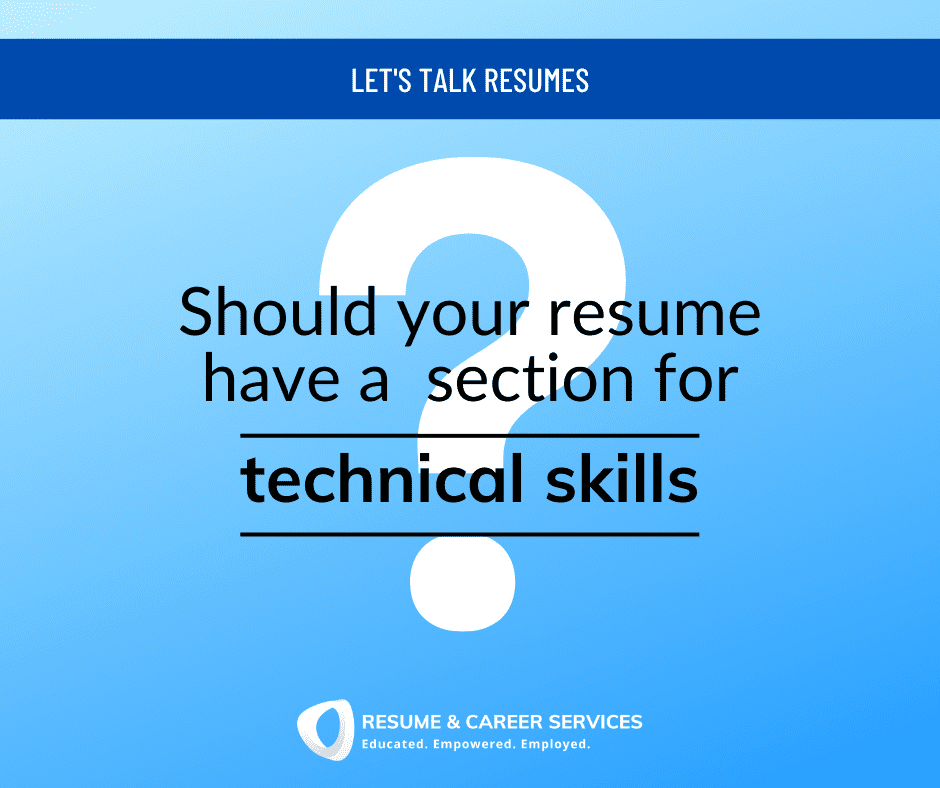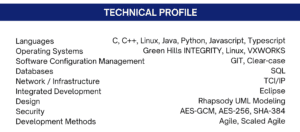Should You Put Technical Skills on Your Resume?

When writing a resume, job seekers tend to want to load it with as much information as possible. In this era of applicant tracking software (ATS) systems, content is important on a resume given that ATS systems are searching to match your keywords with those in the job description. But what about technical skills? Job seekers in all industries and at various levels will often add technical skills on the resume, but should you?
What Are Technical Skills?
Before we dive into the answer to the question about adding technical skills on your resume, we should start by defining what these are exactly.
For candidates in IT fields, technical skills are pretty clear: they include computer languages, databases, operating systems, and other computer-related skills candidates possess. Other candidates may also add what they consider to be technical skills, such as programs they know. Those could be as simple as Word, Excel, and Slack or as job specific as JIRA, Sage, and Workday.
What technical skills are not are what might be considered “soft skills.” These include such terms as project management, customer service, software architecture, and the like.
Who Should Add Technical Skills to Their Resume?
You might think that everyone should have a technical skills section on their resume. Or you might be in the other camp and think it’s just for IT folks.
The real answer is: It depends.
A well-written resume pulls in keywords from the job description. Therefore, if specific skills are listed as must-haves in the job description, they should be on your resume. Assume that those are words the ATS system will be scanning for on the resumes that are received. If you are applying for a technical role that asks for several programs, languages, and operating systems, you may need a technical profile. If not, it’s probably best to leave it off.
How to Share Your Skills
If you determine that you need to add technical skills on your resume, either because you’re in a field where it makes sense or the position asks for them, there are two primary ways to do so:
- As part of your areas of expertise section
- In a dedicated technical profile
Areas of Expertise
Every resume needs to have an areas of expertise section. This is part of the top third of your resume, immediately following your title and summary. These are the skills that you bring to the table and match the job description, such as those “soft skills” mentioned previously. If you are not in a technical field yet want to share some of the programs you know, working them in here is an excellent option.
Technical Profile
If you want to add a lot of technical skills on your resume because of your industry, role, or the requirements of the job description, creating a dedicated technical profile may be the best choice. This is in addition to your areas of expertise and usually lives just below it on your resume. For just a few, you can list them, but if you have several, creating a bit of a rubric is a smarter way to approach it. See the image for an example.

Update Your Technical Skills on Your Resume Every Time
Every time you apply to a new position, you should be reviewing your resume and updating the key components from the top third of the document. These include:
- Title or headline
- Summary
- Areas of expertise
- Technical profile (if you choose to include one)
Make sure that you’re always addressing the requirements in the job description, so your resume matches it as closely as possible.
Resume and Career Services Is Here to Help
No matter where you stand on the issue of putting technical skills on your resume, Resume and Career Services is here to help. Here’s how:
- We provide complimentary resume reviews. Send yours to hello@resumeandcareerservices.com.
- We write resumes! Learn more about all our options here.
- Plus, through our eight-week Career Advocate Program, you’ll not only get great career documents, but you’ll partner with a coach to guide you every step of the way. Check it out here.
